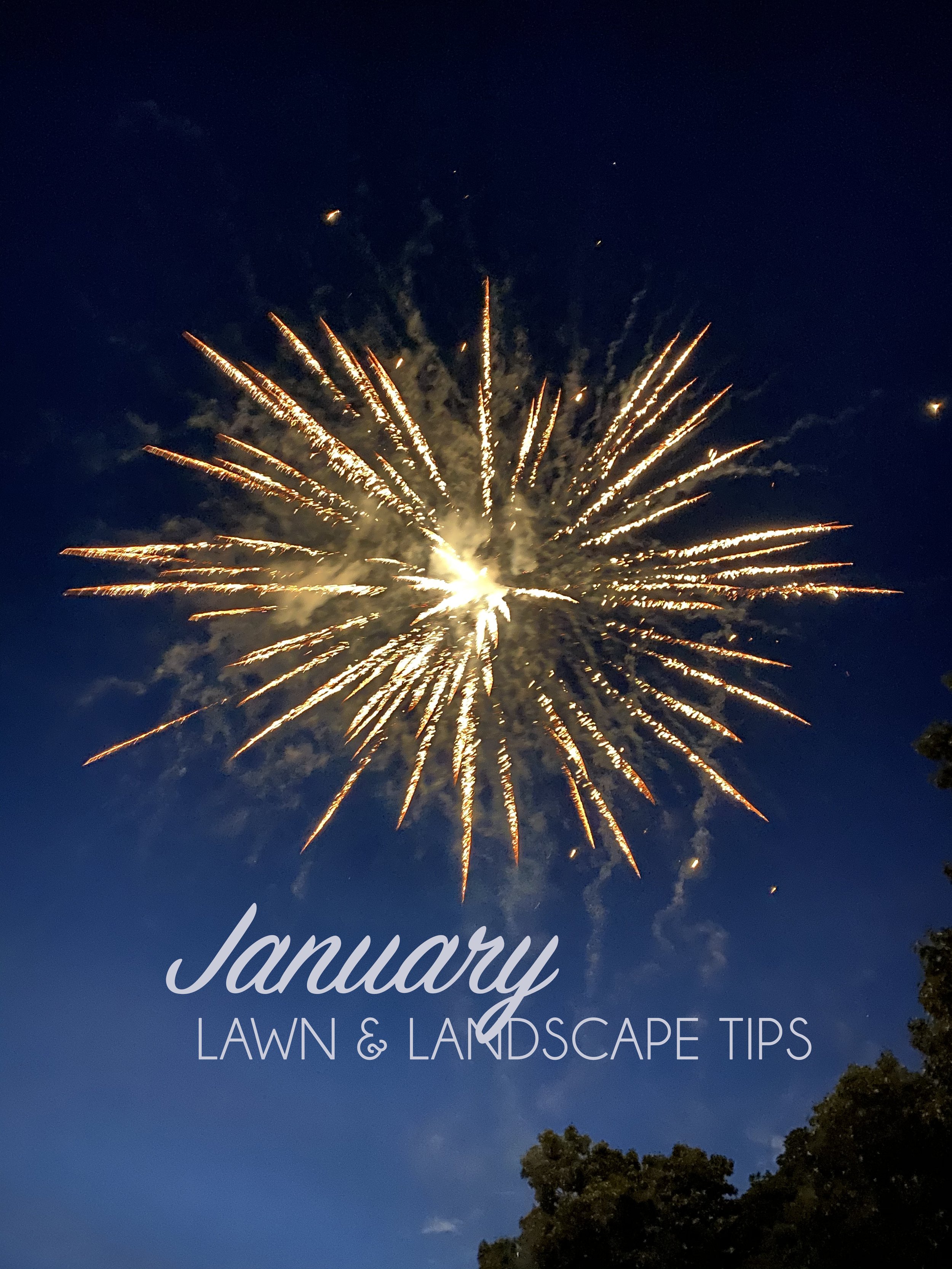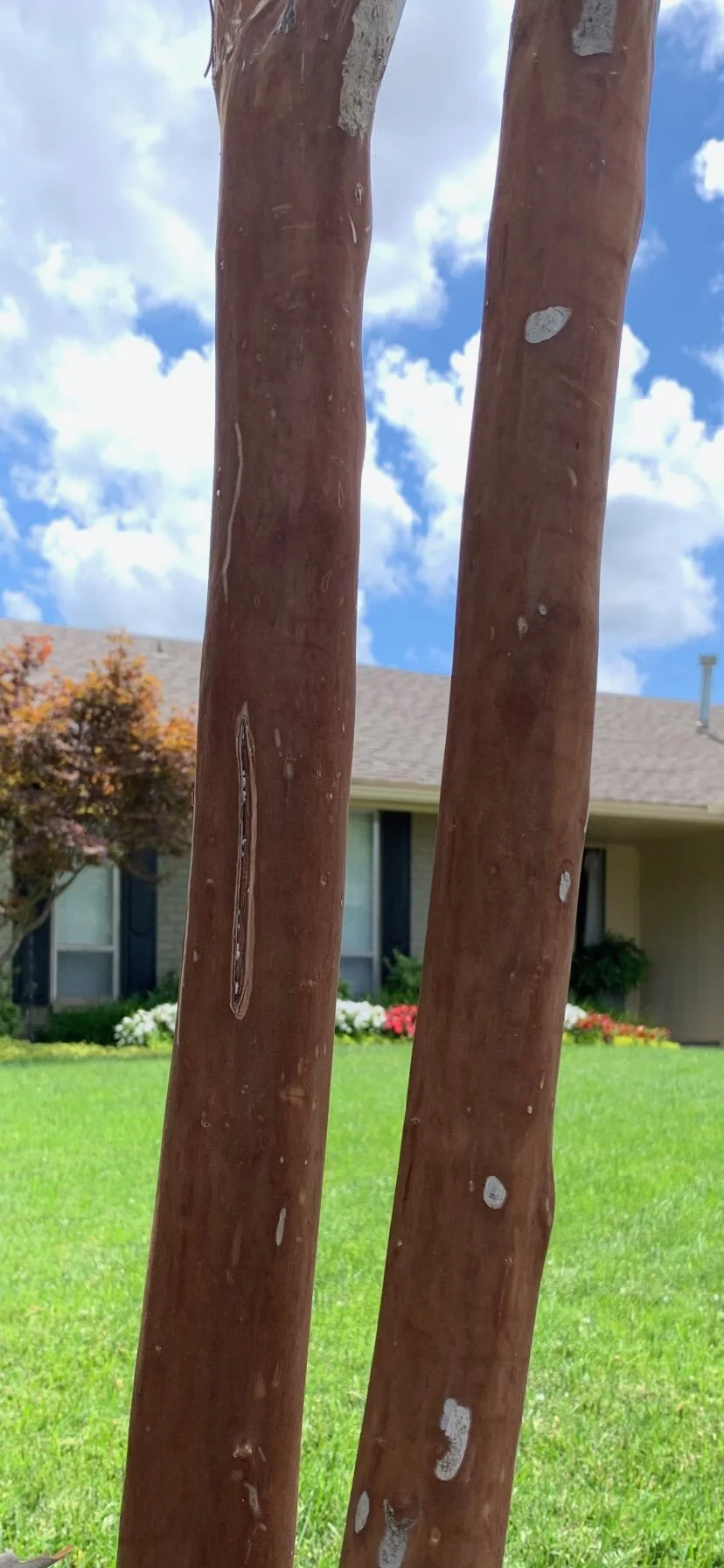January Lawn + Landscape Tips
Happy New Year!
I’m ready to push the restart button on a new year!
How about you?
I know your lawn and landscape are definitely ready for a new year. They found the weather patterns and environment of 2021 very challenging. Record cold last February left most landscapes scared and began a pattern of unusual weather that continued through the entire year. Bermuda lawns found the cooler than normal first half of the growing season difficult while fescue lawns looked better than ever. Then came the second half of the summer and the march of the armyworms. Overnight nearly perfect fescue lawns were devastated. The warmth of September resulted in Bermuda lawns looking their best at the time of the year when they are normally slowing down. To finish the year….the Oklahoma City area has gone over 60 days without any moisture.
Here’s to hoping for a return to normal, as normal as possible, weather patterns in 2022!
The list of things to do outdoors in January isn’t long, but there are a few critical things that will make a big difference in the success of your lawn and landscape in 2022.
Lawn Pre-Emergent – Your best chance to have a weed free lawn this year is to apply a pre-emergent between now and the end of February. The purpose of a pre-emergent is to prevent weed seeds from germinating. The next weeds to germinate in your lawn will be the ones that haunt you all summer. Spring and summer weeds will start growing as soon as soil temperatures start to warm in early March.
Nonselective herbicides can be used while the turf is completely dormant to control any weeds that are actively growing.
If you are a subscriber to a Hall | Stewart’s Lawn Care Program,
we will be visiting your lawn very soon to apply the critical
first application of the year to prevent spring and summer weeds.
Lawn Post-Emergent – If you have a warm-season lawn (Bermuda and Zoyia), now that we have received freezing temperatures it is one of the best times to gain control of troublesome grassy and broadleaf weeds. Nonselective weed control (herbicides that control anything that is actively growing) can be used while the turf is completely dormant. Now is also a good time to control broadleaf weeds growing in fescue, but do not use a nonselective herbicide on fescue. Always read the labels, know your turf type, and only apply herbicides labeled for your turf type.
Moisture – Pay close attention to plant and lawn moisture over the winter. Fortunately, we received a critical 1/3” to 3/4” rainfall in the metro area as the cold temperatures arrived this weekend. Through the winter keep an eye on rainfall and soil moisture. If we go over 7 days without any moisture, rain, or snow, be prepared to water. Evergreen plants, both needle and broadleaf, are most susceptible to winter damage when we have a dry winter. Don’t forget to inspect containers, raised plantings, and plantings under the eaves of your house are the first to become too dry.
Tree Trim – During winter dormancy, tree trimming is a great practice. Most trees are in need of restorative tree pruning this winter to correct damage from last year’s ice storm. With the leaves off the trees, it is much easier to see damage and branching problems. Remove low hanging branches, crossing branches, and branches growing into the interior of the tree. Also, remove branches that may compete with the central leader.
For more information on tree trimming, visit our post from December 19, Winter Tree Pruning – Improve Your Landscape Investment.
Dormant Oil – During January and February one of the best things you can do to prepare your landscape plants for the season is to treat them with a dormant oil. Dormant oils smoother overwintering insects (aphids, scale, mites, etc.) that often are some of the most difficult to control.
Crape myrtle bark scale activity has increased over the past few seasons. Scale is a white insect with a hard shell that appears on the bark. Dormant oils applied in January-February is the first step for controlling the pest. If your landscape includes crape myrtles, you need a dormant oil application every year.
When leaves accumulate in the corners of your lawn during the winter they become a collecting place for insects and disease.
Leaf Clean-up – Keep your lawn and landscape clear of leaves through the winter. If you allow leaves to collect on your fescue lawn, in the corners and around objects, you will find the fescue thinner in the spring. Also, leaves are a collecting place for insects and disease over the winter.
Soil Test – If your lawn, shrubs, or trees struggled this year, now would be a great time to check the soil pH and nutrients. Fill a quart sized plastic bag with soil from at least 6 spots in the area of concern. Take soil from just below the surface. Remove roots from the soil. Use a separate bag for soil from your lawn and landscape areas. Take the soil sample to your local Oklahoma State University County Extension Office. They will test the soil and send you a report for a nominal fee. The Oklahoma County office is located at 2500 NE 63rd St., Oklahoma City, OK 73111. Or, give us a call and we will gather a sample and take it to the lab for you.
Mower Maintenance – During the mowing off season take your lawn equipment in for annual winter service. Most lawn equipment stores offer specials during January on oil changes, lubrication, blade sharpening, and repairs. Annual preventive maintenance often keeps you from experiencing the frustration and hassle of repair issues during the growing season and extends your mower life.
If have any questions, or if you need help making 2022 your best lawn and landscape year, please give us a call.
One last thought – Avoid walking on fescue lawns when temperatures are below freezing or there is a frost as it will cause damage that will last into the spring.
Lorne Hall
Hall | Stewart Lawn + Landscape
(405)367-3873.






